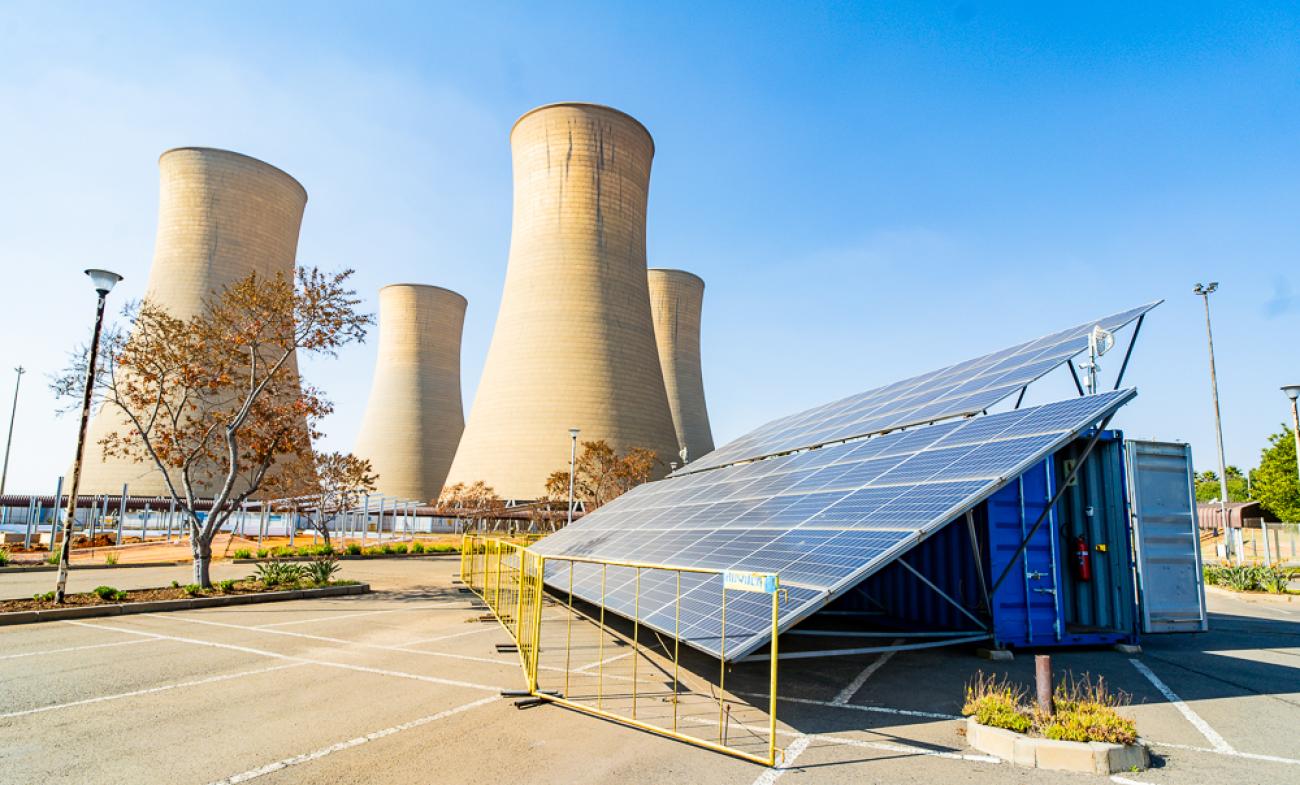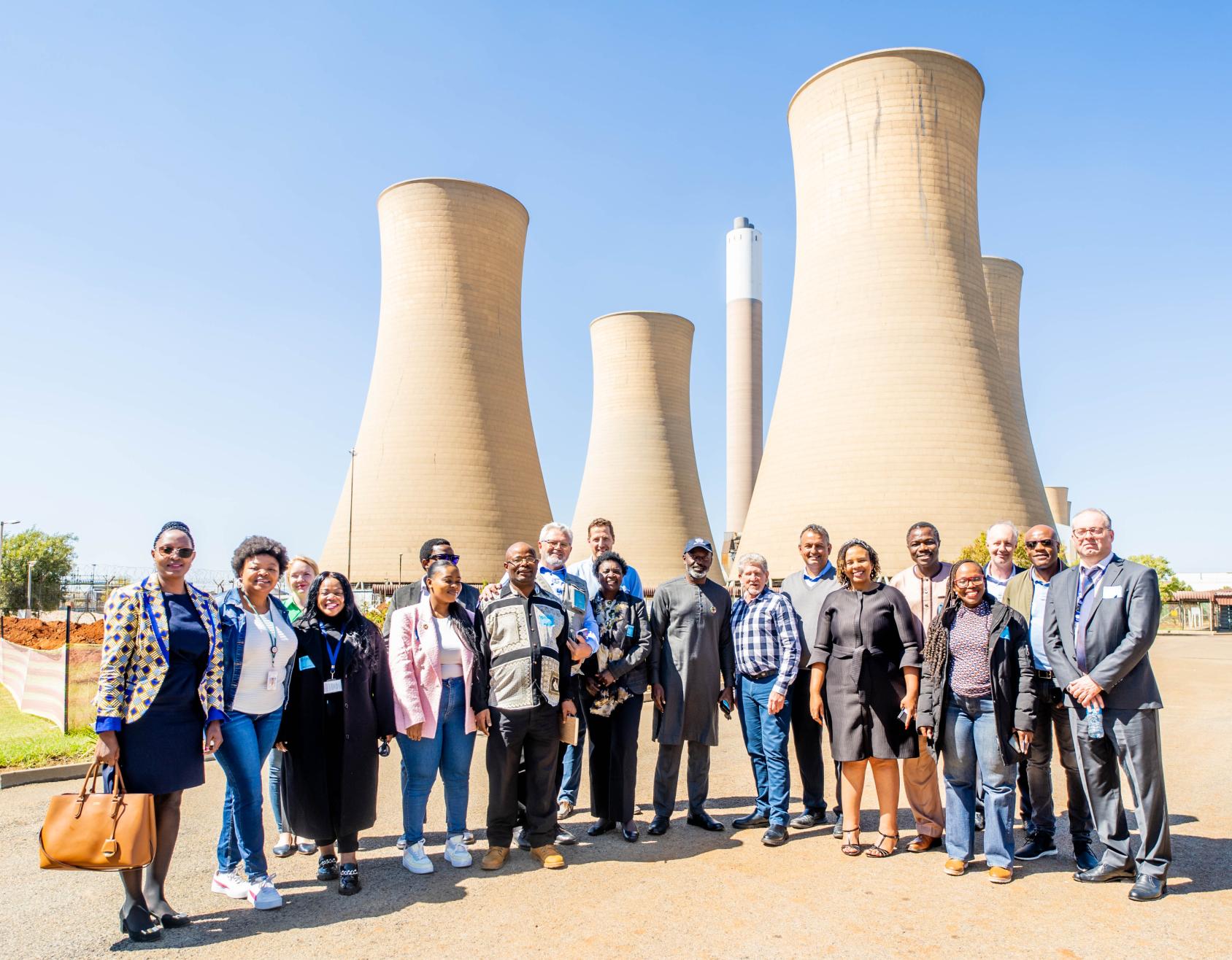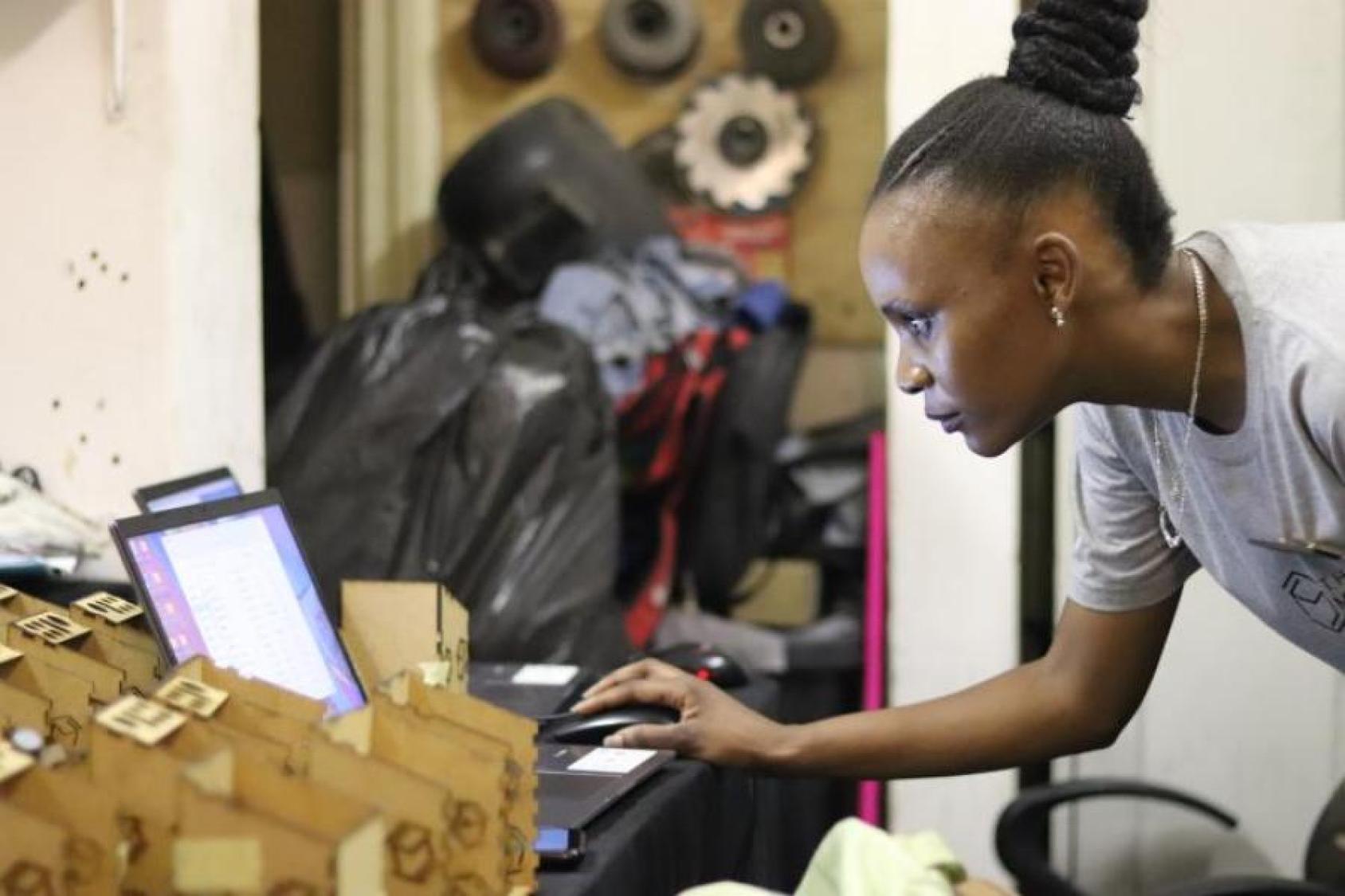South Africa: A Just Transition to Sustainable Energy

Access to reliable, affordable, and sustainable energy is a fundamental human right which underpins socio-economic progress and well-being. It powers education, healthcare, food security, industrialization, economic opportunities, and a better quality of life. Despite the post-1994 energy access progress, millions in South Africa’s townships, informal settlements, and rural areas still live without affordable and reliable electricity.
Bridging this sustainable energy divide is a core priority for the UN in South Africa. The Resident Coordinator’s Office (RCO), along with the UN Country Team (UNCT) and the Presidential Climate Commission, is committed to fostering collaboration and driving action to ensure that no one is left behind in this critical transition.
The concept of a Just Energy Transition (JET) is at the heart of South Africa's green journey. It is about more than just switching to cleaner energy sources; it is about ensuring that this transition is equitable, inclusive and affordable.
As the UN Resident Coordinator, I have been actively engaging and mobilizing government, the private sector, civil society, and communities. With the full involvement and support of the UNCT, we are informing and accompanying a dynamic and inclusive JET approach and narrative which resonates with, and benefits, everyone. Ultimately, we hope to demonstrate and ensure that the just energy transition is not only about keeping the lights on but also about powering social and economic transformation.
UN entities working on South Africa are actively promoting best practices, in the areas of policy, programming and advocacy, for managing the socioeconomic impacts of transitioning to clean energy. They are also shaping innovative and accessible financing instruments and allocations to support this transition. Our collective action is focused on three key areas.
1. Prioritizing vulnerable communities
To achieve universal access to affordable and clean energy, we are prioritizing those most vulnerable to energy poverty or the negative impacts of transitioning away from coal. We are working with the government to shape and implement key policies like the Climate Change Response Fund, the Climate Change Act and the Just Energy Transition Partnership (JET-P) and Investment Plan, ensuring an equitable and inclusive transition to a low-carbon economy.
Our efforts include facilitating community consultations, conducting research and policy dialogues, and empowering small and medium-sized enterprises (SMEs), youth and women in underserved communities with training and skills as well as facilitate financing for their involvement in the energy sector. The United Nations Development Programme (UNDP) is scaling up Technical and Vocational Education and Training (TVET) programmes, offering skills development in areas like off-grid energy, healthcare electrification, and empowering women and youth in the power sector. Additionally, other initiatives implemented through various UN entities equip vulnerable youth and women with the skills needed to succeed in the emerging electric vehicle and renewables industry.
We are also committed to safeguarding the livelihoods of workers affected by the transition, supporting the creation of new job opportunities in renewable energy, and providing green skills training programmes. The International Labour Organization (ILO), UN Women, the United Nations Industrial Development Organization (UNIDO), the Food and Agriculture Organization (FAO), the World Food Programme (WFP), and other UN entities are working to strengthen the skills of workers, women, youth, and trainers. They are developing innovative clean energy solutions, proposing tailored financing for SMEs, expanding mini-grid systems for reliable electricity in key sectors, and fostering partnerships across society to ensure a just energy transition.

2. Promoting energy efficiency and renewables
We are committed to supporting South Africa's efforts to mitigate climate change and reduce dependence on fossil fuels by promoting energy efficiency and the adoption of renewable energy sources.
Frameworks for decentralized renewable energy systems are being developed through a UNIDO-led initiative, aiming to reduce emissions and enhance energy infrastructure. South Africa's ambitious mandatory Minimum Energy Performance Standards for lighting, promoting the use of energy-efficient LED lamps, were established with key support from the UN Environment Programme.
The UN in South Africa is also supporting the country's leadership in the G20 Energy Transitions Working Group, focusing on efficiency and renewables.
3. Fostering financing, innovation and technology transfer
Fostering financing, innovation and technology transfer is vital for developing countries like South Africa to leapfrog into sustainable energy systems. The UN is dedicated to bridging technological and financial gaps through international cooperation and support, ensuring South Africa has the necessary tools and resources for this transition. The RCO along with the UNCT plays a pivotal role in facilitating partnerships, knowledge sharing, and mobilizing support for concessional financing, technology transfer and capacity building. This includes securing assistance from the European Union, International Finance Corporation (IFC), and south-south cooperation platforms like the African Development Bank (AfDB), BRICS and its New Development Bank.
Young people are key drivers of innovation and sustainable solutions. Through initiatives like "Circular Innovator" and "Green Hustle" challenges, the UN in South Africa empowers youth to develop circular economy business plans. Additionally, UN agencies offer knowledge exchange workshops and mentorship, transforming their innovative ideas into reality.

The transition to a just and sustainable energy future is a complex but necessary journey. In my role, I contribute to ensuring that different UN agencies working on South Africa collaborate effectively, leveraging their expertise and resources to achieve maximum impact. We are committed to breaking down silos, fostering collaboration, advancing innovative financing instruments, and promoting a holistic approach to sustainable development.
The UN in South Africa stands ready to accompany the government and people of South Africa on this transformative journey. Together, we can build a South Africa where energy is a catalyst for progress, justice, and shared prosperity, leaving no one behind.
This blog was written by the United Nations Resident Coordinator in South Africa Nelson Muffuh. To learn more about the work of the UN in South Africa visit southafrica.un.org













